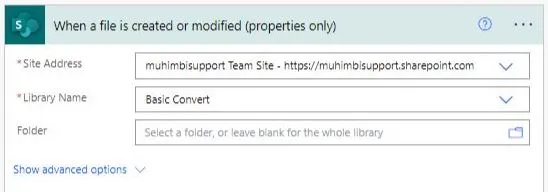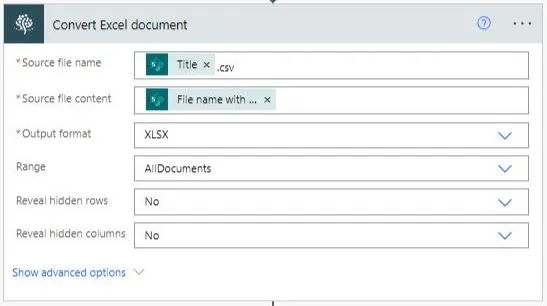Convert CSV files to Excel with Power Automate
Want to see it in action? Contact us to schedule a demo!
In this guide, you’ll learn how to convert a CSV file to an Excel (XLSX) file using Power Automate. Nutrient supports converting a large number of different file formats through Power Automate. See the file formats we support.
Steps to convert your CSV file to an Excel (XLSX) file using Power Automate:
- Create a flow in Power Automate
- Define your action
- Create a file
- Publish your workflow
This example uses Power Automate to convert a CSV file to an Excel file in SharePoint. However, you can save your Excel file to Dropbox, Google Drive, OneDrive, or any platform supported by Power Automate. You can also extend our example by adding additional automation, such as sending the converted Excel file as an email.
Prerequisites
Ensure all prerequisites are in place:
- A full or free trial subscription to Nutrient Document Converter for Power Automate
- Appropriate privileges to create flows
Using Power Automate to convert CVS to Excel
This example takes you through converting a CSV document to an MS Excel (XLSX) document.
1: Creating a new flow
Create a new flow and use the When a file is created or modified (properties only) SharePoint Online trigger. Fill out the fields for the Site Address, Library Name, and Folder.

2: Converting CSV to XLSX
Insert Nutrient’s Convert Excel document action, and fill it out as shown in the screenshot below. Fill in the Source file name and Source file content fields with suitable values.

3: Creating a file
Insert a Create file action to write the converted file back to your desired destination.

4: Publishing the workflow
Publish the workflow and create or update a CSV file in the specified document library. After a few seconds, the flow will trigger and an MS Excel (XLSX) file will be generated.